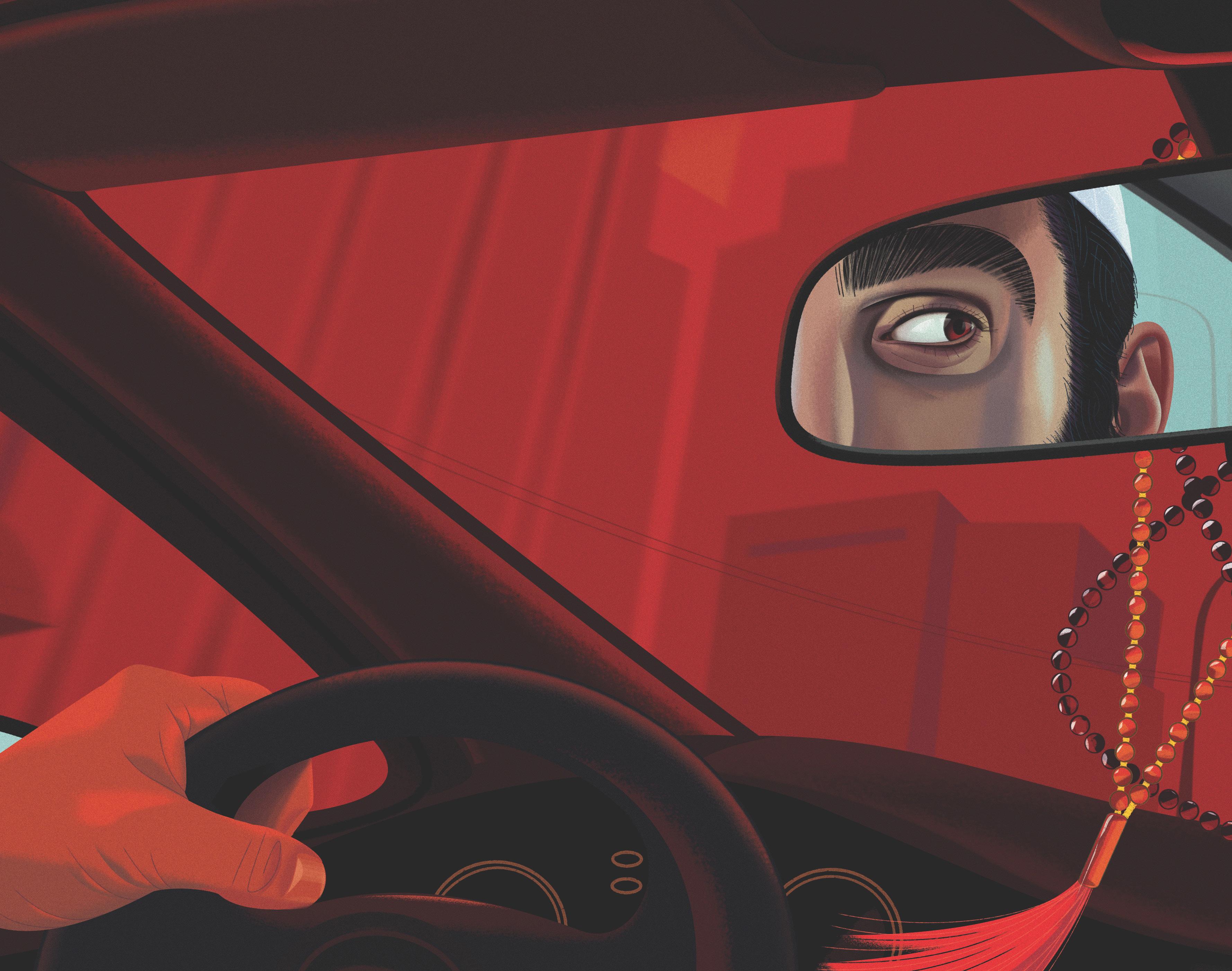

SHALIMAR CLOWN THE
Libretto by Rajiv Joseph Music by Jack Perla
Based on the novel by Salman Rushdie
“Our lives, our stories, fowed into one another’s, were no longer our own, individual, discrete.”

Shalimar the Clown is Salman Rushdie’s postcolonial lament for Kashmir - a lost Himalayan paradise where the author spent childhood summers at his grandparents’ home. The novel weaves fction, history, magic realism, and allegory through the characters Boonyi, Shalimar, Max and India.
Rushdie sets these characters in motion in a world of retribution – a history in which it is no longer clear what is cause and what is effect. Shalimar the Clown traces this cycle of violence from its roots in post-war neo-imperialism to its branches in extremism.
India, daughter of Kashmiri Boonyi and American Max, breaks the cycle. Able to navigate Western and Kashmiri worlds, she represents Rushdie’s vision of pluralism as a weapon to resist political and religious violence.
Salman Rushdie, Shalimar the Clown
PROLOGUE
Los Angeles, 1989
India is celebrating her 25th birthday. Her father Max arrives in a chauffeured car and offers her a beautiful archery bow. The scene is thrown into chaos when Max’s driver, Shalimar, brutally murders Max.

“The reason that it begins in Los Angeles but is about events on the other side of the world is that I’m trying to suggest that that’s the world we live in,” Rushdie says. “That a murder in West Hollywood can only be explained by events in the Himalayas, across the world.”
- Salman Rushdie

PARADISE
Act I : Kashmir, 1964 - 1966
In the village of Pachigam, a Muslim teenager named Shalimar practices tightrope-walking for the Bhand Pather, a traditional theater troupe. He is transfxed when Boonyi, a beautiful young Hindu girl, begins to dance. They linger after rehearsals, eventually meeting for a rendezvous to make love. Shalimar asks Boonyi to swear she will never leave him. He vows that if she does, he will kill her and any children she has by another man.
When the village elders learn of the romance, they decide to marry the young couple rather than punish them. A few protest a Muslim-Hindu wedding, but Abdullah, Shalimar’s father, reminds them that they are all Kashmiris. Shalimar is overjoyed, but Boonyi feels trapped by the suddenness of marriage.
Months pass and Max, the new U.S. ambassador to India, arrives in Pachigam. He meets Boonyi after a performance of the Bhand Pather and begins an affair with her in Delhi. Shalimar returns to Pachigam, hoping Boonyi will come home.
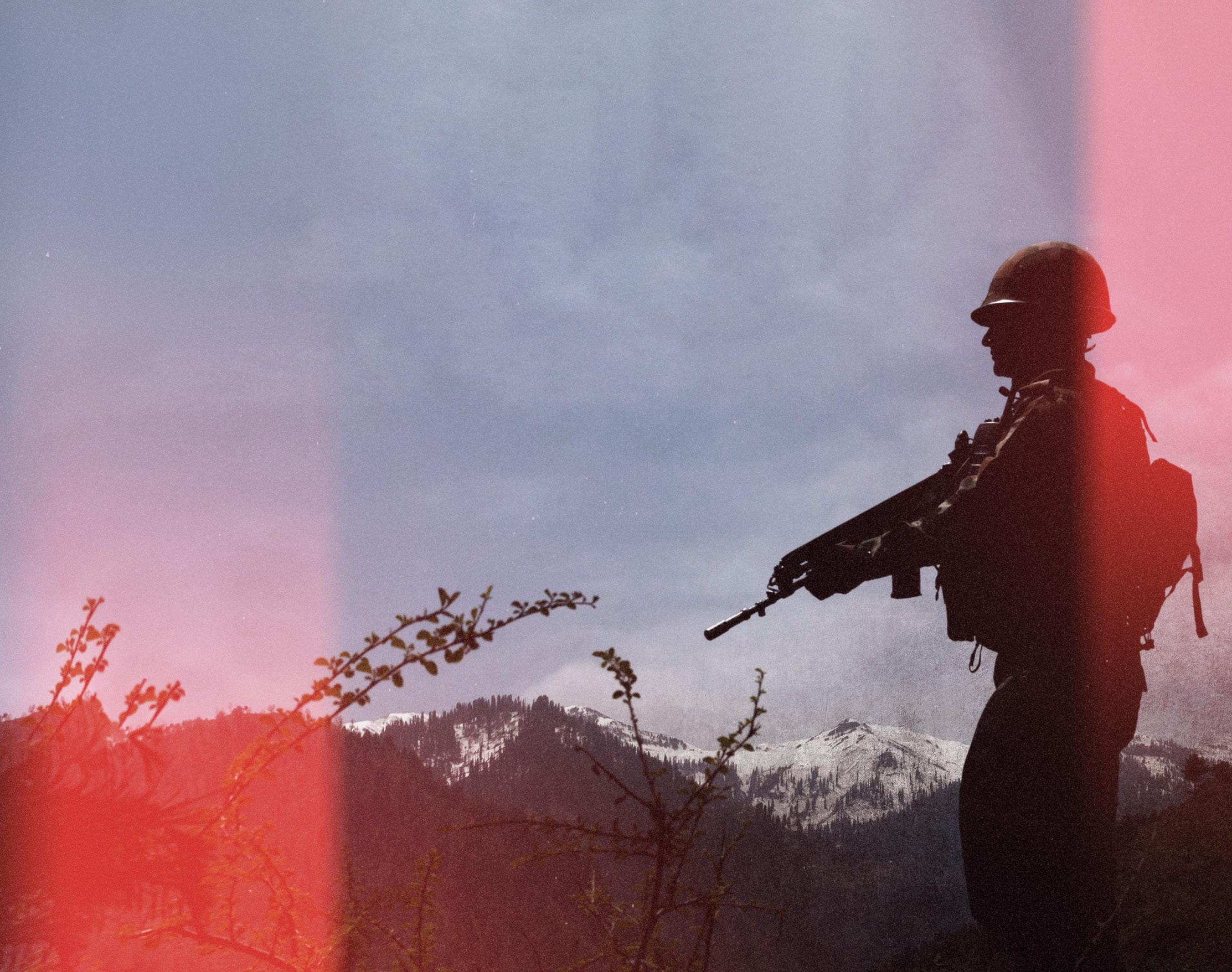
LOST
Act II: Kashmir, 1966-1988
Max ends the affair when Boonyi bears their child, India, whom he takes with him to Los Angeles. Boonyi returns to Pachigam and is declared a ghost by the village. Shalimar joins an extremist group to acquire the skills and connections he needs to fulfll his vow.
Years pass as unrest spreads throughout the Valley. Shalimar returns to Pachigam only to fnd it destroyed by the Indian army. Boonyi is the sole survivor. They drift through the ruins of their childhood home, surrounded by the ghosts of family and friends. Shalimar begins the journey to Los Angeles, to complete his vow.

ANGELS
Epilogue: Los Angeles, 1989
India returns to Max’s home in the wake of Shalimar’s attack, and learns the truth about her birth mother. The following evening Shalimar infltrates the home. India is prepared.

Characters
Boonyi Kaul is a Kathak dancer and performer in the Bhand Pather, the traditional traveling theater of Kashmir. Hindu, she marries Shalimar.
Shalimar the Clown, née Noman Sher Noman is a performer and tightrope walker in the Bhand Pather. Muslim, he marries Boonyi.
Max Ophuls, resistance fghter and war hero, was United States Ambassador to India, and afterward the U.S. Counterterrorism Chief.
India Ophuls, a flmmaker, boxer and archer, is the daughter of Max and Boonyi. Her actions in the epilogue signal a path forward, away from Shalimar’s darkness.
Peggy Ophuls is Max’s wife and, later, India’s step-mother.
Abdullah Noman is Shalimar’s father, the village headman, muslim Ustad (wiseman) and leader of the Bhand Pather.
Firdaus Noman is Abdullah’s wife and Shalimar’s ferocious mother, possessed of an unsparing tongue.
Gopinath is Pachigam’s conniving school teacher, who bungles his attempt to compel Boonyi to marry him.
Pyarelal Kaul, a philosophy-minded widower with a gift for cookery, is Boonyi’s father and Pachigam’s Hindu Pandit.
Bulbul Fakh is a fundamentalist Muslim cleric who is literally made of scrap metal. His arrival in Pachigam signals the beginning of the end of “Kashmiriyat.”
Bombur Yarmbazal is the grand waza (head chef) of Shirmal, the neighboring town to Pachigam.
Zahir , a high-strung terrorist from Kandahar, comes to Kashmir to follow Bulbul Fahk.
Performance Information
Runtime 2 hr, 14 min
Prologue: 6 min // Act I: 1 hr, 12 min // Act II: 51 min // Epilogue: 5 min, 30 sec
India Soprano
Boonyi Soprano
Peggy Mezzo Soprano
Firdaus Alto
Nazarébaddoor Alto
Shalimar Tenor
Gopinath Tenor
Zahir Tenor
Bombur Tenor
Max Baritone
Pyarelal Baritone
Bulbul Baritone
Abdullah Bass
Chorus SATB
* = option to double cast
2 Flutes (Flute 2 dbl Piccolo)
2 Oboes (Oboe 2 dbl English Horn)
2 Clarinets (Clarinet 2 dbl Bass Clarinet)
2 Bassoons (Bassoon 2 dbl Contrabassoon)
4 Horns in F
2 Trumpets in Bb Bass Trombone
Tuba
Timpani (2 drums)
Percussion, 2 Players
Harp
Keyboard [Celesta, Piano, Harmonium/Santoor/ Tambura (sampled)]
Sitar
Tabla
Strings
Creators

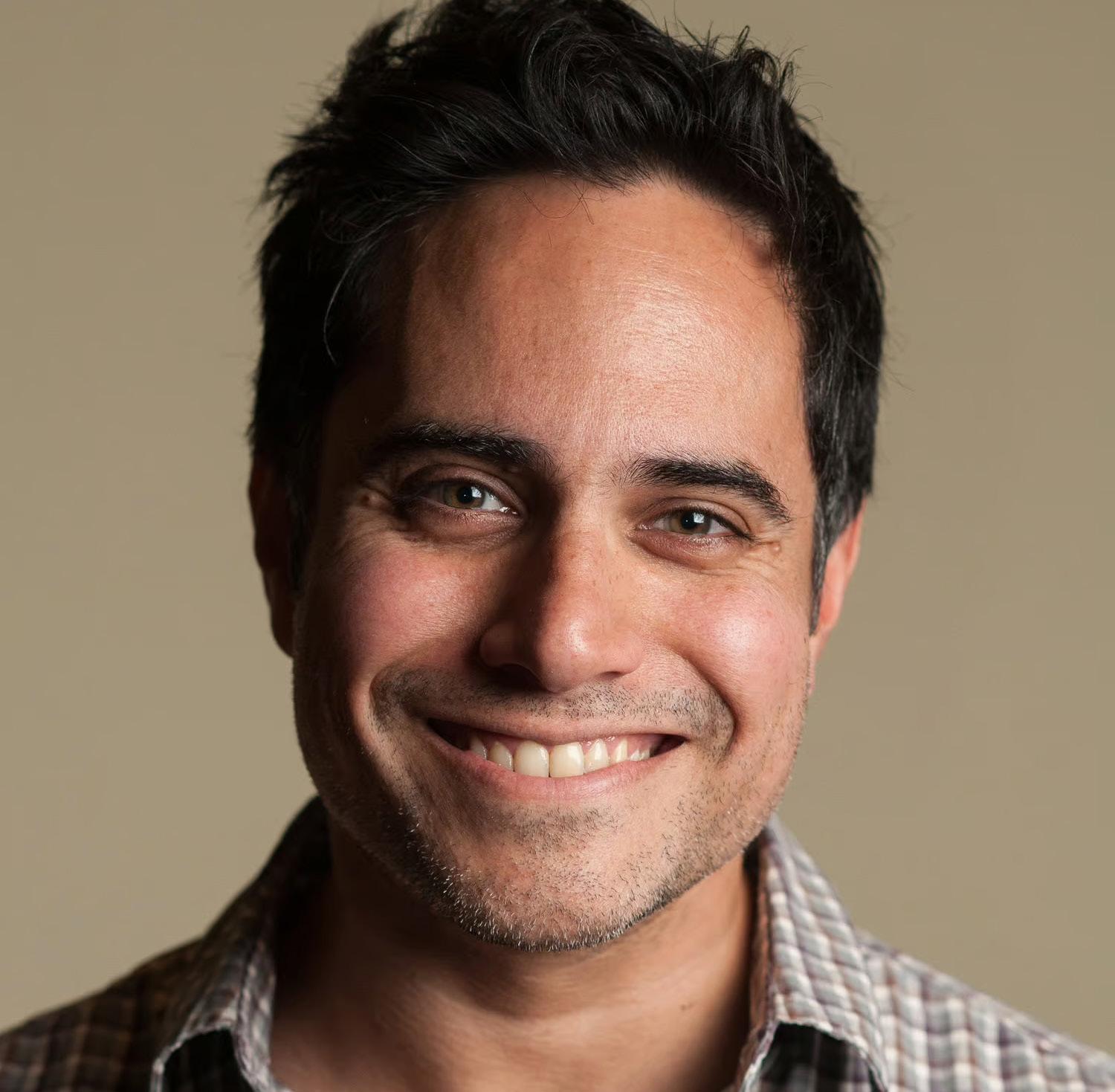
Jack Perla, Composer
Composer and pianist Jack Perla survived youth in Staten Island thanks to his parents’ Auto-Changer Phonograph. It put Mendes, Gigli, Miles, Rachmaninoff, Garner and Tchaikovsky in a playlist that opened his ears. He attended NYU and the Manhattan School of Music, studying with John Corigliano. He formed Music Without Walls with Mark Feldman, Marty Ehrlich, and John Goldsby, and went on to earn a DMA at the Yale School of Music with Jacob Druckman and Martin Bresnick. He’s been commissioned by the Los Angeles Opera, Opera Theatre of St. Louis, Houston Grand Opera, Seattle Opera, Paul Dresher Ensemble, TwoSense, MATA, Oakland Symphony and San Francisco Symphony. He’s received awards from the Thelonious Monk Institute, American Composers Forum, New Music USA, Barlow Endowment for Music Composition, Argosy Foundation, James Irvine Foundation, Paul Mellon Foundation, Civic Orchestra of Chicago, Yaddo, Opera Fusion, Opera America, the MacDowell Colony and American Opera Projects.
Rajiv Joseph, Librettist
Rajiv Joseph is an American playwright and screenwriter known for his thoughtprovoking and emotionally charged works. Born in Cleveland, Ohio in 1974, Joseph graduated from Miami University with a degree in creative writing before going on to receive his MFA in playwriting from NYU’s Tisch School of the Arts. Joseph made his Broadway debut in 2011 with the play “Bengal Tiger at the Baghdad Zoo,” which starred Robin Williams in the lead role. The play, which explores the Iraq War through the eyes of a tiger in the Baghdad Zoo, received critical acclaim and was a fnalist for the Pulitzer Prize for Drama. Joseph’s other notable stage works include “Gruesome Playground Injuries,” “Animals Out of Paper,” and “Guards at the Taj,” which won the 2016 Obie Award for Best New American Play.
Creators
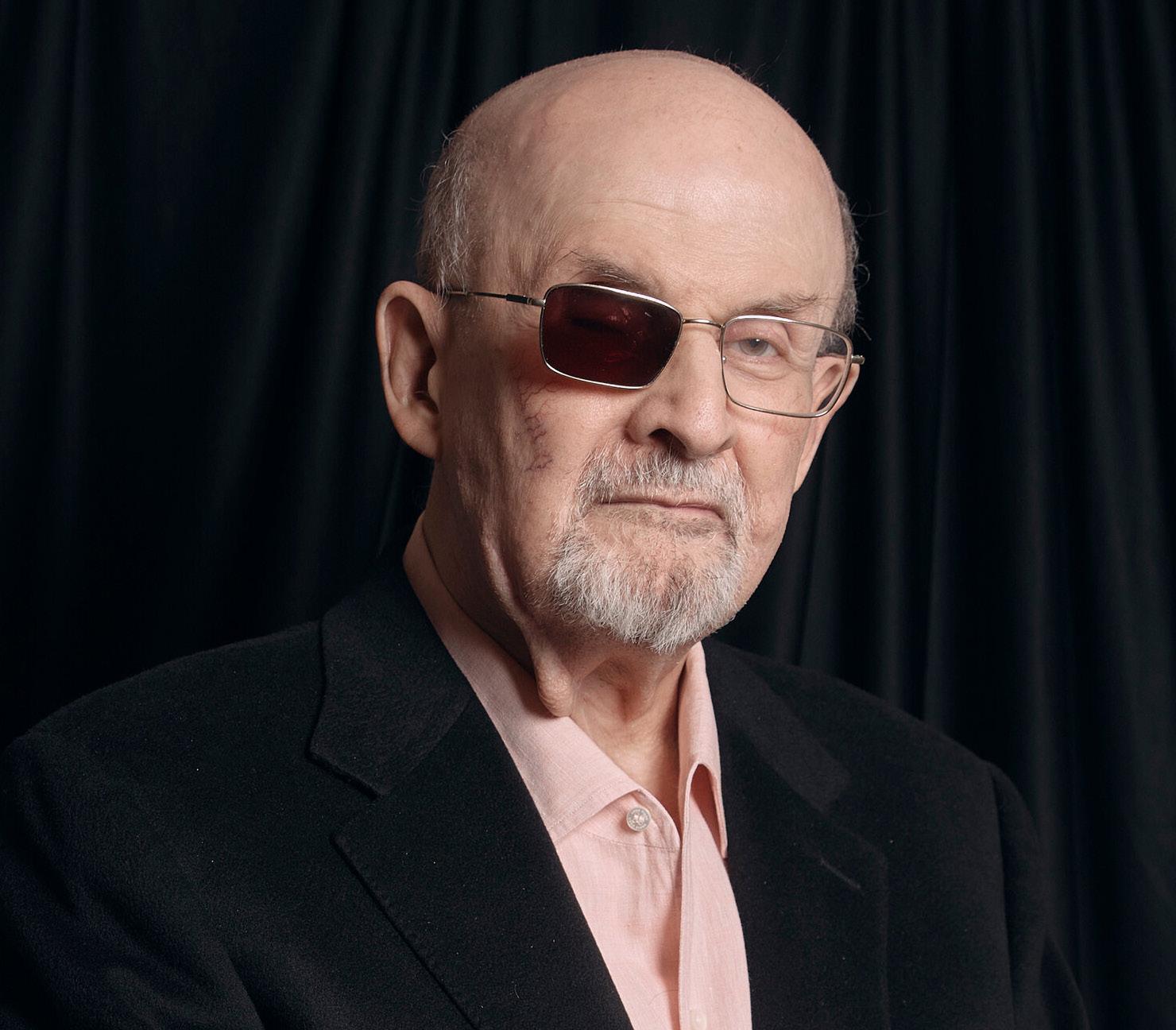
Salman Rushdie, Novelist
Salman Rushdie is the author of thirteen novels: Grimus, Midnight’s Children (which was awarded the Booker Prize in 1981), Shame, The Satanic Verses, Haroun and the Sea of Stories, The Moor’s Last Sigh, The Ground Beneath Her Feet, Fury, Shalimar the Clown, The Enchantress of Florence, Luka and the Fire of Life, Two Years Eight Months and TwentyEight Nights, and The Golden House. His fourteenth novel, Quichotte, is forthcoming from Random House in the Fall of 2019.
Rushdie is also the author of a book of stories, East, West, and four works of non-fction – Joseph Anton – A Memoir, Imaginary Homelands, The Jaguar Smile, and Step Across This Line. He is the co-editor of Mirrorwork, an anthology of contemporary Indian writing, and of the 2008 Best American Short Stories anthology.
A Fellow of the British Royal Society of Literature, Salman Rushdie has received, among other honours, the Whitbread Prize for Best Novel (twice), the Writers’ Guild Award, the James Tait Black Prize, the European Union’s Aristeion Prize for Literature, Author of the Year Prizes in both Britain and Germany, the French Prix du Meilleur Livre Étranger, the Budapest Grand Prize for Literature, the Premio Grinzane Cavour in Italy, the Crossword Book Award in India, the Austrian State Prize for European Literature, the London International Writers’ Award, the James Joyce award of University College Dublin, the St Louis Literary Prize, the Carl Sandburg Prize of the Chicago Public Library, and a U.S. National Arts Award. He holds honorary doctorates and fellowships at six European and six American universities, is an Honorary Professor in the Humanities at M.I.T, and University Distinguished Professor at Emory University. Currently, Rushdie is a Distinguished Writer in Residence at New York University.
He has received the Freedom of the City in Mexico City, Strasbourg and El Paso, and the Edgerton Prize of the American Civil Liberties Union. He holds the rank of Commandeur in the Ordre des Arts et des Lettres – France’s highest artistic honour.
Creators
North Indian music is integral to Shalimar the Clown. Sitar and tabla are prominent throughout, and the talas and ragas of North Indian classical music deepen the emotional impact of the scenes. I composed the score in close collaboration with sitarist Arjun Verma. “Negotiations”, in which Max and Boonyi work out the details of their mutual seduction, is a co-composition with Arjun. It is, in miniature, a complete rendering of Raga Patdip, known for its sense of intrigue and eagerness.
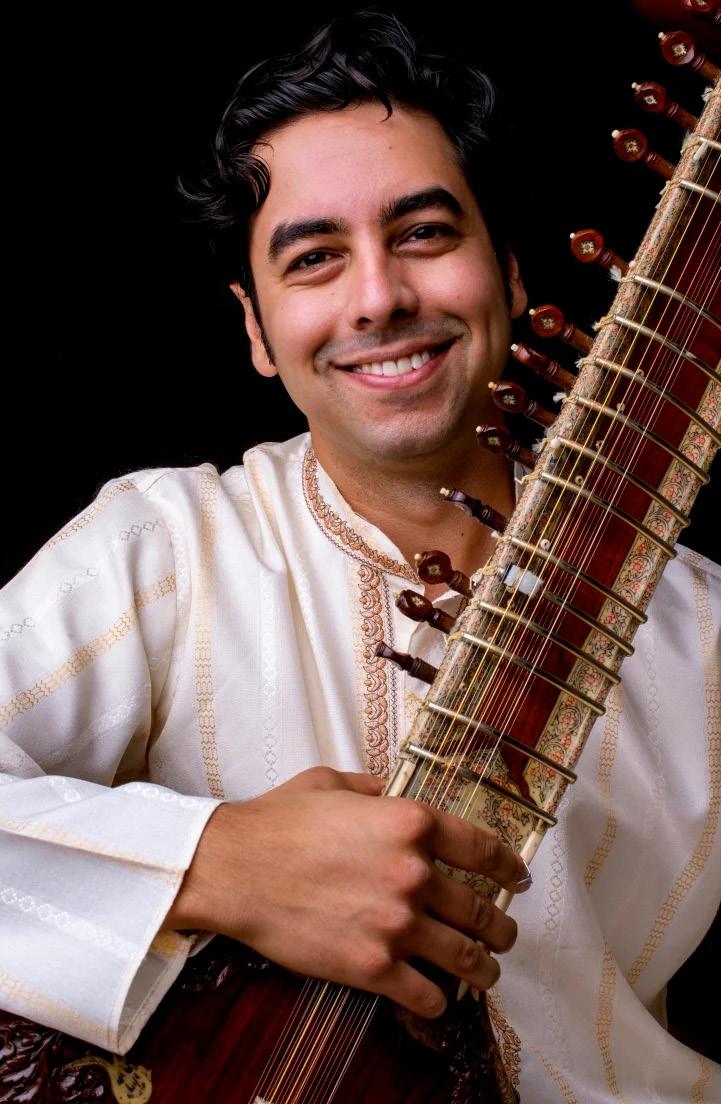
Arjun Verma, Collaborator
The son of sitarist Roop Verma, Arjun began learning sitar at age fve. As a teen, he was fortunate to study with Maestro Ali Akbar Khan for eight years, and since the Maestro’s passing, with his son Alam Khan. In 2007, Arjun was awarded a Shenson Fellowship by the San Francisco Foundation to continue training at the Ali Akbar College of Music. Arjun began performing at the age of seven, and has played concerts in the United States, Europe, and India, including performances at the United Nations (Geneva), the Fillmore (San Francisco), Fox Theater (Oakland), Pattee Arena (Monterey), Prague Castle (Prague), and the New School (New York).
Arjun has performed with Alam Khan, Swapan Chaudhuri, Bob Weir, Pandit Sharda Sahai, Ustad Shabbir Nisar, Indranil Mallick, Kai Eckhardt, Jack Perla, Fareed Haque, Krishna Das, Maya Kherani, Michael Sumuel, Salar Nader, Nilan Chaudhuri, Anirban Roy Chowdhury, and many others. In addition to playing Indian Classical Music, Arjun has experimented with using the sitar in other musical genres, such as Western Classical, Celtic, Opera and Jazz. Arjun’s music has received critical acclaim from leading publications, including the New York Times, Sruti Magazine, the St. Louis Post-Dispatch, and the San Francisco Chronicle. In addition to performing, Arjun teaches sitar and North Indian Classical Music at the Ali Akbar College of Music, the East-West School of Music, and the California Jazz Conservatory.
I am being rowed through Paradise in a river of Hell: Exquisite ghost, it is night.
The paddle is a heart; it breaks the porcelain waves...
I’m everything you lost. You won’t forgive me. My memory keeps getting in the way of your history. There is nothing to forgive.You can’t forgive me. I hid my pain even from myself; I revealed my pain only to myself.
There is everything to forgive. You can’t forgive me.
If only somehow you could have been mine, what would not have been possible in the world?
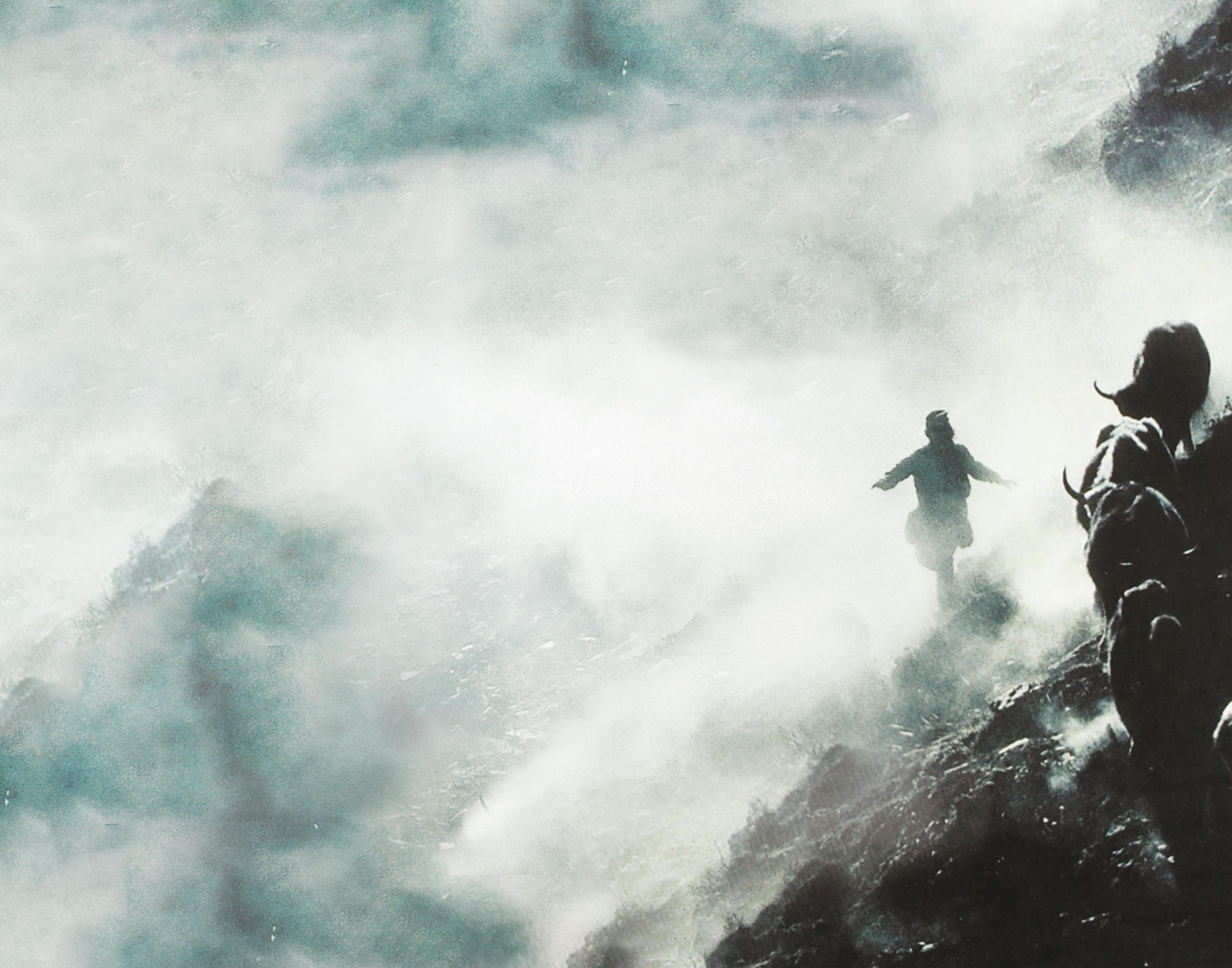
Agha Shahid Ali
The Country Without a Post Ofce
